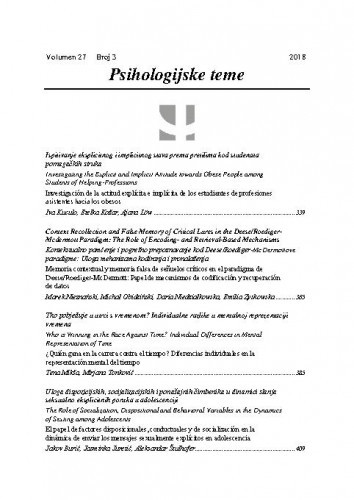One of the most prominent models of psychopathy operationalizes this construct as consisting of four factors: interpersonal, affective, lifestyle and antisocial traits. These traits show different relationship patterns with other constructs, and these relations may differ in men and women. The aim of this study was to investigate whether the relations between psychopathic traits and indicators of emotional distress (depression, anxiety and stress), differ between men and women. Data was collected on 650 students (60% women) at the University of Zagreb. The results of Canonical Correlation Analysis indicated that affective psychopathic traits have adaptive potential and represent a protective factor for experiencing emotional distress, while Lifestyle and Antisocial behavior represent risk factors for emotional distress. Moreover, sex had a moderating role in the relationship between Interpersonal and Lifestyle traits and distress, indicating that psychopathic traits seem to be more adaptive in males, compared to females.; Jedan od najistaknutijih modela psihopatije uključuje četiri relevantne crte: interpersonalnu, emocionalnu, crtu životnoga stila te antisocijalnu. Ovi čimbenici pokazuju različite obrasce povezanosti s drugim konstruktima, a odnosi među njima mogu biti različiti kod muškaraca i žena. Cilj je ovog rada bio istražiti razlikuju li se odnosi između psihopatskih crta i indikatora emocionalnog distresa (depresije, anksioznosti i stresa) kod muškaraca i žena. Podaci su prikupljeni na uzorku od 650 studenata (60 % žena) Sveučilišta u Zagrebu. Rezultati su kanoničke korelacijske analize pokazali da emocionalne psihopatske crte imaju adaptivni potencijal i predstavljaju zaštitni faktor u doživljavanju emocionalnog distresa, dok životni stil i antisocijalno ponašanje predstavljaju rizični faktor za emocionalni distres. Također, spol je bio moderator u odnosu između interpersonalnog faktora i životnog stila te distresa, upućujući time na mogućnost da su psihopatske crte adaptivnije za muškarce nego za žene.; Uno de los modelos de psicopatía más destacados supone que este constructo consta de cuatro factores: rasgos interpersonales, afectivos, de estilo de vida y antisociales. Estos rasgos muestran diferentes modelos de relación con otros constructos y estas relaciones se diferencian en hombres y mujeres. El objetivo de este trabajo fue investigar si hay diferencia entre los hombres y las mujeres en la relación entre los rasgos psicopáticos y los indicadores de angustia emocional (depresión, ansiedad y estrés). Los datos se recogieron en la muestra de 650 estudiantes (60% mujeres) en la Universidad de Zagreb. Los resultados del análisis de correlación canónica indicaron que los rasgos psicopáticos afectivos tienen un potencial adaptivo y representan un factor para la angustia emocional, mientras que el estilo de vida y la conducta antisocial representan un factor de riesgo. Además, el género tuvo un papel moderador en la relación entre los rasgos interpersonales y de estilo de vida por una parte y angustia por otra, indicando que los rasgos psicopáticos parecen ser más adaptivos en hombres, en comparación con las mujeres.
Sažetak

 Psihologijske teme : 27,3(2018) / glavna i odgovorna urednica Barbara Kalebić Maglica.
Psihologijske teme : 27,3(2018) / glavna i odgovorna urednica Barbara Kalebić Maglica.